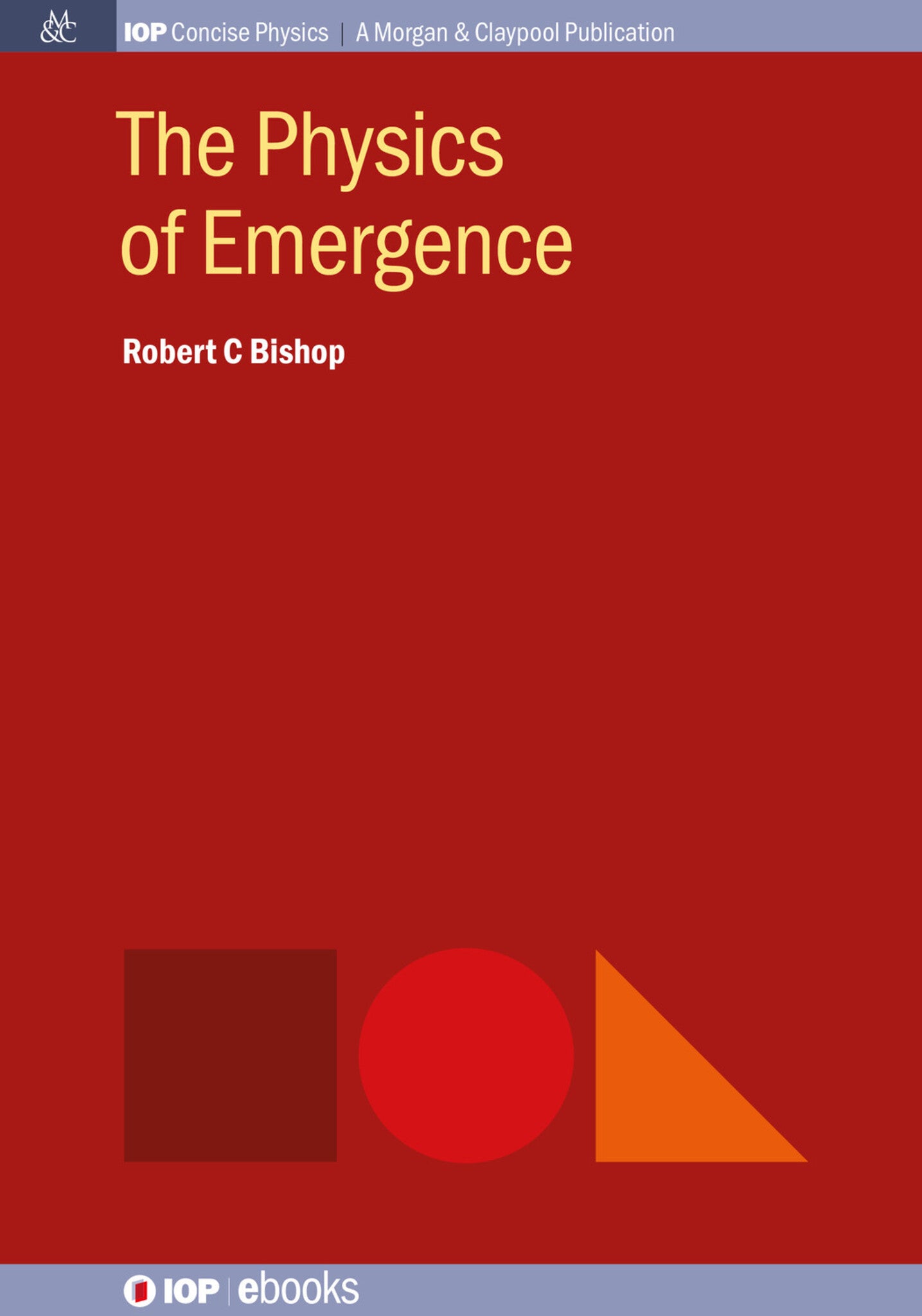We're sorry. An error has occurred
Please cancel or retry.
The Physics of Emergence

Some error occured while loading the Quick View. Please close the Quick View and try reloading the page.
Couldn't load pickup availability
- Format:
-
04 June 2019

A standard view of elementary particles and forces is that they determine everything else in the rest of physics, the whole of chemistry, biology, geology, physiology and perhaps even human behavior. This reductive view of physics is popular among some physicists. Yet, there are other physicists who argue this is oversimplified and that the relationship of elementary particle physics to these other domains is one of emergence. Several objections have been raised from physics against proposals for emergence (e.g. that genuinely emergent phenomena would violate the Standard Model of elementary particle physics, or that genuine emergence would disrupt the lawlike order physics has revealed). Many of these objections rightly call into question typical conceptions of emergence found in the philosophy literature.
This book explores whether physics points to a reductive or an emergent structure of the world and proposes a physics-motivated conception of emergence that leaves behind many of the problematic intuitions shaping the philosophical conceptions. Examining several detailed case studies reveals that the structure of physics and the practice of physics research are both more interesting than is captured in this reductive/emergence debate. The results point to stability conditions playing a crucial, though underappreciated, role in the physics of emergence. This contextual emergence has thought-provoking consequences for physics and beyond, and will be of interest to physics students and researchers, as well as those interested in physics.

SCIENCE / Physics / Nuclear, SCIENCE / History, SCIENCE / Physics / General

Introduction
1 Brief history of the debate
1.1 The Modern Emergentists
1.2 Einstein, Pauli, and Schr¨odinger
1.2.1 Albert Einstein
1.2.2 Wolfgang Pauli
1.2.3 Erwin Schr¨odinger
1.3 The Return of Emergence
1.4 Questioning the Hierarchy
1.5 Weinberg and the Response to P.W. Anderson
1.6 Universality and Independence
2 Some physics objections to emergence
2.1 Physics Is Fundamentally Causally Closed
2.2 Fundamental Principles/Laws Govern Everything
2.3 Symmetry Is Reduction
2.4 Coherence of Physics and the Sciences
2.5 Ontological Emergence Violates Fundamental Laws
2.6 Atomism, Context and Reductionism
2.7 Bare versus Dressed States
3 Contextual emergence
3.1 A framework of conditions
3.2 Stability Conditions
3.3 Contextual Topologies and Abstraction
3.4 Contextual Topologies and Contexts
3.5 Possibility spaces
3.6 Ontic/Epistemic States and Observables
4 Case studies from physics
4.1 Convection as contextually emergent state
4.1.1 Rayleigh-B´enard Convection
4.1.2 Convection as a Contextual Emergent State
4.2 Temperature as contextually emergent property
4.2.1 Two transitions
4.2.2 The contextual emergence of temperature
4.2.3 Chemical potential as a contextually-emergent property
4.3 Molecular Structure as contextually emergent property
4.3.1 The importance of molecular structure
4.3.2 Ontological Contextual Emergence of Molecular Structure
4.3.3 Quantum chemistry’s classical/quantum algebra
4.4 Brief Examples
4.4.1 The Electromagnetic Field
4.4.2 The Fractional Quantum Hall Effect
4.4.3 Synthetic Spin-1/2 Systems
4.4.4 Lasers
4.4.5 Suppressing Spatiotemporal Instabilities
5 Responding to Objections
5.1 Physics Is Fundamentally Causally Closed
5.2 Fundamental Principles/Laws Govern Everything
5.3 Symmetry Is Reduction
5.4 Coherence of Physics and the Sciences
5.5 Ontological Emergence Violates Fundamental Laws
5.6 Atomism, Context and Reductionism
5.7 Is It All Just Boundary Conditions?
5.8 Everything Is in the Fundamental Domain
6 Broader Implications
6.1 Redefining Fundamentality
6.2 Contextual Emergence of the Macroscopic
6.2.1 Decoherence
6.3 Implications for the Universal Wave Function
6.4 Laws of Nature
6.5 Determinism
6.5.1 Contextual Emergence of Stochasticity and Determinism
6.6 Contextual Emergence Beyond Physics
6.6.1 Contextual emergence in biology
6.6.2 Contextual emergence in cognitive and neuroscience
6.6.3 Contextual emergence and free will
7 Appendices
7.1 Appendix 1: *-Algebras
7.2 Quantum and classical algebras
7.2.1 Classical algebras
7.2.2 Classical/quantum algebras
7.3 Algebras and dynamics
7.4 Topologies
7.5 Structural Stability and Topological Equivalence
7.6 KMS States
Bibliography



